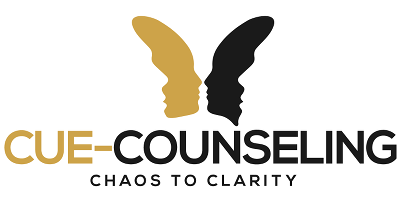Therapists do all they can to alleviate your troubles. But if you want things to improve, you must see your role in the process.
Therapy is a joint effort. It is a commitment from both parties to solve problems and heal pain. To get the most out of it, you need to put your best foot forward, even when things are really, really tough.
The good news is you can be tougher. Here’s how to get the most out of your therapy.
- Do the Homework
No, you aren’t actually assigned homework in therapy.
However, there will be times when you’re asked to search your memories, practice new methods of self-regulation, talk to people in your life about an issue, or form new habits.
For example, in preparation for a trauma therapy like EMDR, you are asked to…
- Observe your feelings and describe them in detail.
- Search your past and make a list of the moments where you feel what you’re feeling now.
- Associate these events with specific mental images.
- Form a mental “safe zone” that you can access if you start feeling overwhelmed.
Another example: If a therapist teaches you how to use mindfulness to combat your anxiety, think of it like being given a power. It’s up to you to use that power to make your life better.
Similarly, if you come to therapy because you have social anxiety, getting to the bottom of why you feel that fear is only one aspect of the healing process, it won’t go away just by talking about it.
Using your newfound insights, you can start exposing yourself to your fears and overcoming them. That’s the part your therapist cannot do for you, nor would you want them to.
Think of it as being given your wings back. If you never use your new wings, then you won’t be able to get out of the bad place you’re in.
- Go There
Go to the place you’re afraid to go emotionally. Of course, this will be at your own pace.
But know that the pain you feel, what you’re ashamed of, and the difficult memories all serve as raw material for you and your therapist to work with.
Stepping into that vulnerable place is not easy for anyone, but it is probably the most essential part of the process. Eventually, even if it’s only a tiny bit at a time, you reveal yourself. In a way, it’s a leap of faith.
In being vulnerable with a therapist, you’re putting your trust in someone you don’t know well yet. You’re hoping that they will…
- A. Not Judge You
- B. Be intelligent enough to understand your pain.
- C. Have the expertise to work with what you told them.
- D. Will react positively and treat you with empathy no matter the content of your admissions.
Put your faith in this person, and you’ll find that what you were ashamed of was not uncommon, the negative beliefs you held were never true, and you still have a chance at a great life.
- Define What You Are Looking For
Sometimes, the answer is obvious.
Maybe you’re looking to not be in pain anymore or to mend a relationship, overcome a fear, or cope with loss.
But other times, your goals in therapy are not clearly defined.
It’s easy to fall into a pattern of habitually going to therapy without giving it a second thought. But what would benefit you most is to think of issues you want to address before your sessions.
Try to be proactive in what you talk about in therapy. In some sessions, what you want to say will be obvious, and others will require that you do some thinking about what still troubles you.
This isn’t about obsessively making every session “productive.” It’s about exploring each issue in greater depth as you come to gain insight about yourself and your problems.
Remember, you can talk about anything and everything. You can show up in your worst moments, and your therapist will treat you just the same.
- Your Attitude Makes a Difference, Especially When Things Are Tough
In your worst moments, showing up to therapy can be an act of strength. And showing up to subsequent sessions takes real fortitude.
If you’ve decided to go to therapy, then you haven’t given up on yourself.
Some part of you deep inside believes that even after all you’ve been through, maybe this could make a difference. Maybe I can get out of this place and make things better.
That’s an attitude that you’ll carry with you throughout the whole process. Even when you aren’t getting the results you want, even when it still hurts, even when you keep falling back into old patterns, you’ll remember that you’re still fighting.
You’re fighting for your life, and that’s something you should take pride in.
So don’t stop exploring and being vulnerable. Your therapist wants to help you, but they can only help as far as you want to help yourself.
Show Up For Yourself
As with most things in life, therapy is what you make it.
Getting better takes a focused effort, courage, commitment, and a willingness to admit what you don’t know.
If you’ve never given this much thought to helping yourself, then let today be the day you start.
Here’s what you need to know:
- Participate in the process. Do the work that is necessary to make things better.
- Go to the places you’re uncomfortable going. That’s where you find the answers to what’s bothering you.
- Be proactive and define your goals for therapy. **If your therapy sessions start to seem repetitive, consider that you might need a break for a while or that there’s a step in the process you might still be avoiding.**
- Attitude is everything, even when you’re in pain.
A therapist can only guide you on your path. The only person truly saving you is you.
